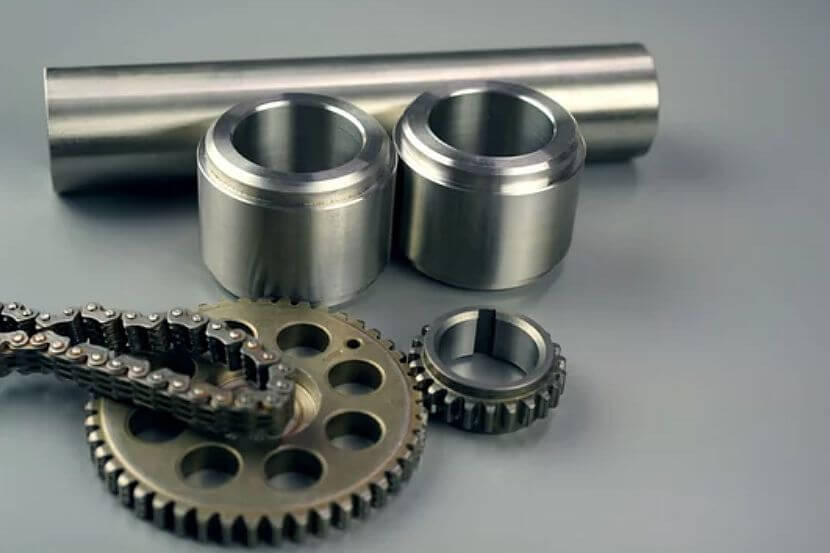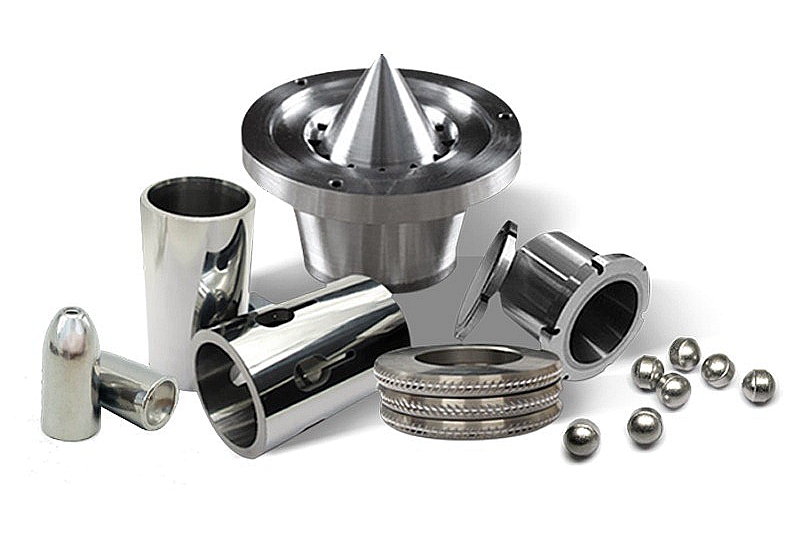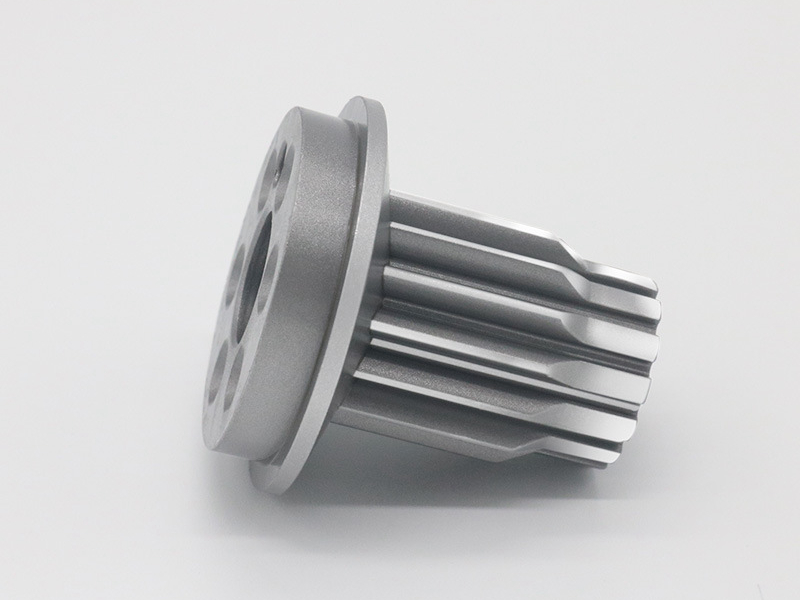What Is Powder Compression Molding (PCM) | Materials And Applications
What Is Powder Compression Molding (PCM)
Powder Compression Molding (PCM), known as powder compaction molding, is a specialized manufacturing process that creates complex components from powdered materials.
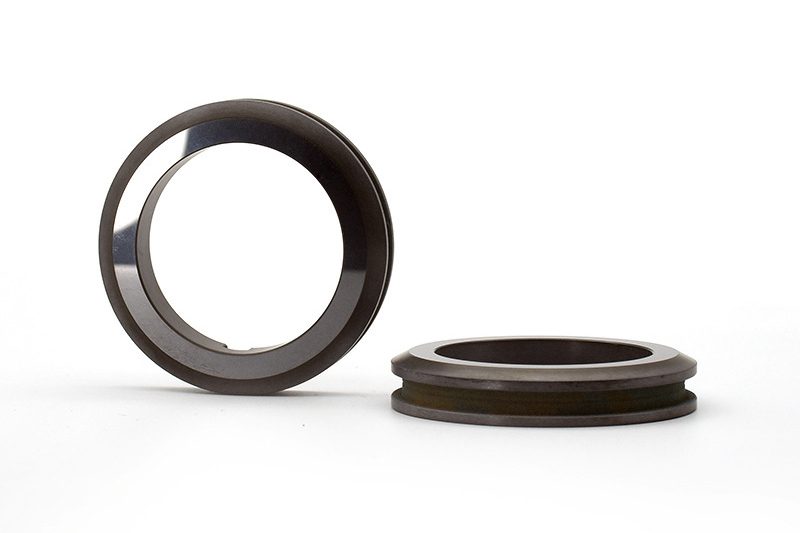
PCM has a variety of optional materials, including some high-melting point alloys, hard alloys, and other difficult-to-process materials. The metal injection molding (MIM) process makes these materials difficult to process.
The PCM process utilizes controlled pressure compaction of powder within a mold to form precision PCM parts. Tight tolerances, hard surfaces, and aesthetics for final parts through sintering and post-processing
PCM-Powder Compression Molding Process Overview
PCM involves the compression of fine powders into a desired shape using a mold and pressure. This highly customizable process makes it suitable for producing parts with intricate geometries, varying densities, and tailored mechanical properties. Compared to the MIM process, the PCM process has a lower complexity of the parts. For example, the PCM process cannot manufacture parts with undercuts.
Powder Selection
The first step is selecting the appropriate powder material. It could be metal powders, ceramics, plastics, or composite materials. The chosen material's characteristics, such as particle size, flowability, and composition, significantly influence the outcome. But Neway commonly uses metal and ceramic powders. The plastic injection molding process is usually used to manufacture plastic parts, which can manufacture more complex parts and is cost-effective in mass production.
Die Filling
The selected powder is carefully loaded into a die, a mold that defines the desired shape of the final part.
Compaction
Pressure is applied to the powder within the die. The particles are forced to come into close contact, reducing voids and achieving densification. The compaction pressure can be precisely controlled, impacting the density and mechanical properties of the final part.
Ejection
Once the powder has been compacted to the desired level, the pressure is released, and the compacted part is ejected from the die.
Sintering (Optional)
Sometimes, the compacted part undergoes a sintering process. Pressureless sintering involves heating the part in a controlled atmosphere to fuse the powder particles, resulting in increased strength and integrity.
Post-Processing (Optional)
Post-processing mainly has three functions. The first is to provide higher precision for PCM parts, such as CNC machining. The second is to provide higher strength, such as heat treatment, nitriding, etc. The third is To provide aesthetics, such as PVD can provide protective layers of various colors. Polishing provides a smooth surface.
PCM Material Optional
Metals like Cobalt alloy, Alloy Steel, Magnetic Alloy, Stainless Steel, Titanium Alloy, Tool Steel, Tungsten Alloy, and copper alloys are frequently used in PCM. These powders can be compacted to create high-strength, lightweight components for aerospace, automotive, and medical industries.
Metal Powders
Powder Compression Molding (PCM) offers a versatile approach to manufacturing components with various materials, each with unique features, applications, and reasons to choose them.
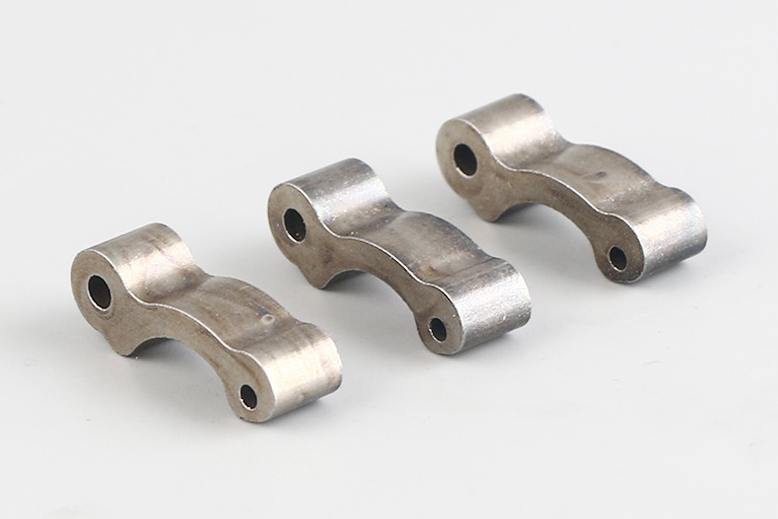
Cobalt Alloys:
Key Features: Cobalt alloys are known for their exceptional strength, wear resistance, and high-temperature stability.
Applications: Cobalt alloys are utilized in aerospace components, medical implants, and cutting tools due to their ability to withstand harsh environments and maintain mechanical integrity.
Reason to Choose: Cobalt alloys are selected for PCM when components require high strength and corrosion resistance, making them suitable for applications with critical durability and performance.
Low Alloy Steel:
Key Features: Low-alloy steel offers a balance of strength, toughness, and machinability while being more cost-effective than high-alloy steel.
Applications: Components subjected to heavy loads and impact, such as automotive parts and industrial machinery, benefit from low alloy steel's durability and cost-efficiency.
Reason to Choose: Low alloy steel is chosen for PCM when a combination of strength and affordability is essential, making it a preferred option for manufacturing robust yet economically viable parts.
Magnetic Alloy:
Key Features: Magnetic alloys possess excellent magnetic properties, making them suitable for applications in sensors, actuators, and electronic devices.
Applications: Magnetic alloys find use in electronics, automotive, and telecommunications, where their magnetic characteristics play a crucial role.
Reason to Choose: Magnetic alloys are preferred in PCM when creating components that require specific magnetic behavior, allowing for precision in applications reliant on magnetic fields.
Stainless Steel:
Key Features: Stainless steel offers corrosion resistance, hygiene, and aesthetic appeal due to its chromium content.
Applications: Used extensively in food processing, medical devices, and architectural structures, stainless steel's corrosion resistance makes it ideal for environments where cleanliness and durability are paramount.
Reason to Choose: Stainless steel is selected for PCM when corrosion resistance and a polished appearance are essential, ensuring longevity and maintaining the material's integrity over time.
Titanium Alloy:
Key Features: Titanium alloys are lightweight, biocompatible, and possess excellent strength-to-weight ratios.
Applications: Aerospace, medical implants, and sports equipment benefit from titanium's strength and low-weight combination.
Reason to Choose: Titanium alloys are favored for PCM when creating components that demand high strength and biocompatibility while minimizing weight, making them indispensable in industries prioritizing performance and health.
Tool Steel:
Key Features: Tool steels are known for their hardness, wear, and heat resistance, making them ideal for cutting tools and molds.
Applications: Tool steels are crucial for industries requiring precise shaping, such as automotive, construction, and consumer goods.
Reason to Choose: Tool steels are chosen for PCM when manufacturing components that undergo cutting, shaping, or molding, ensuring durability and prolonged tool life.
Tungsten Alloy:
Key Features: Tungsten alloys possess high density, excellent radiation shielding properties, and impressive strength.
Applications: Aerospace, medical, and nuclear industries utilize tungsten alloys for their radiation absorption capabilities and structural integrity.
Reason to Choose: Tungsten alloys are preferred for PCM when creating components that necessitate superior radiation shielding, high density, and strength, particularly in critical environments.
Copper Alloys:
Key Features: Copper alloys offer high electrical and thermal conductivity and corrosion resistance.
Applications: Electrical components, heat exchangers, and plumbing systems benefit from copper alloys' conductivity and durability.
Reason to Choose: Copper alloys are selected for PCM when components require efficient heat or electrical conductivity, making them essential in applications where maintaining temperature and electrical performance is crucial.
Ceramic Powder
Ceramics, a versatile class of materials, offer a range of compelling features that make them an intriguing choice for Powder Compression Molding (PCM), aligning seamlessly with Neway's proficiency in precision manufacturing. Ceramics' exceptional attributes, including high-temperature resistance, hardness, electrical insulation, and chemical inertness, open doors to diverse applications. From aerospace and electronics to medical devices and cutting tools, ceramics shine in extreme environments, making them indispensable for components that demand durability, thermal stability, and resistance to wear.
Alumina (Al2O3) - The most typical material used in CIM. Provides high hardness and wear resistance. Used for industrial components, cutting tools, and bearings.
Zirconia (ZrO2) - Offers high fracture toughness and strength. It is stabilized with yttria. Used for valves, seals, and oxygen sensors.
Alumina-Zirconia - Composites combine the properties of alumina and zirconia. Improved strength and toughness.
Silicon Carbide (SiC) - Excellent high-temperature properties. High hardness, strength, and corrosion resistance. Used for automotive and aerospace parts.
Silicon Nitride (Si3N4) - High strength at elevated temps, resistance to thermal shock. Used for gas turbine components turbocharger rotors.
Boron Carbide - Extremely hard with good chemical resistance. Used for armor, nozzles, and seal rings.
Consultative Design Services
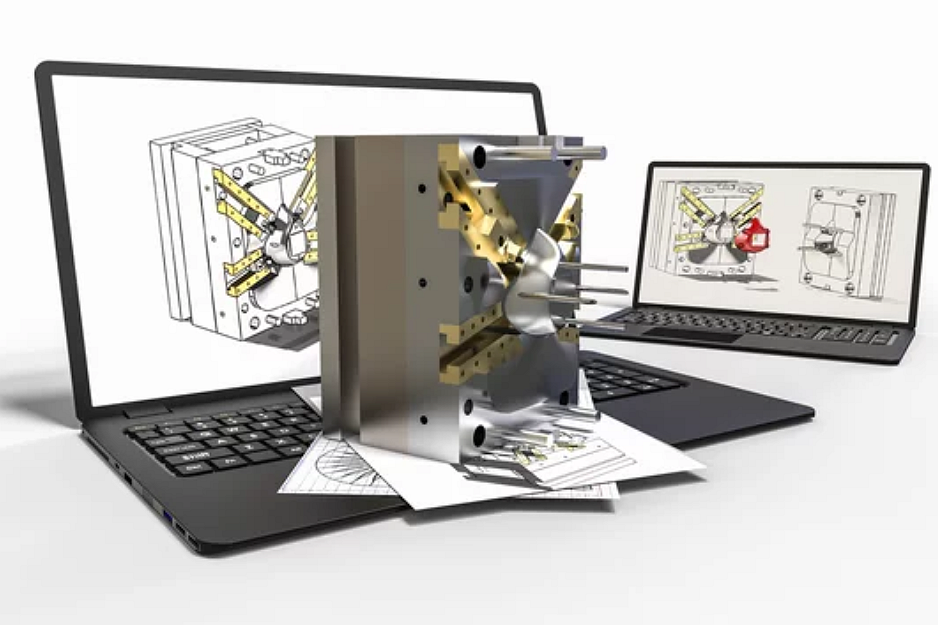
Neway Custom Metal Injection Molding Service provides free Consultative Design Services throughout the process. This includes all processes from your design stage to mass-produced finished products.
1. Material selection Consult
2. Structural design service
3. Mold design service
Contact us now if you are interested.
What We Can Offer?
We offer free material selection and consultative design services from beginning to end. No MOQs, Rapid prototyping, and mass production are our strengths.
